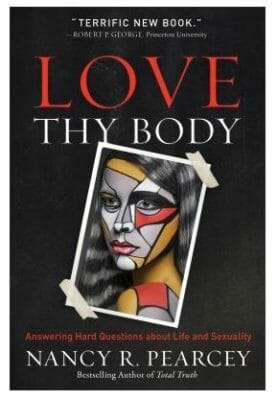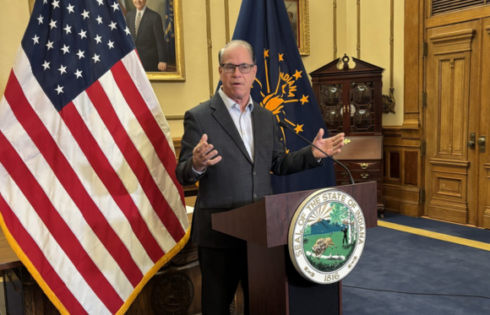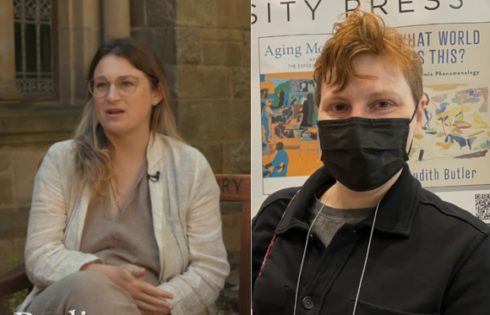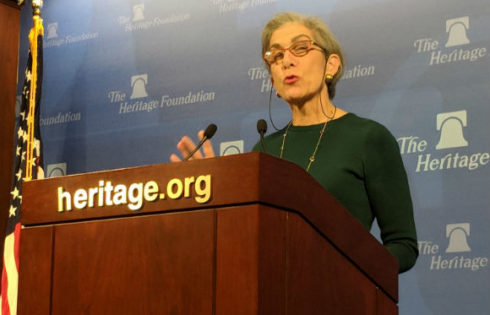
‘The handiwork of a loving God’
Professor Nancy Pearcey was once asked on a radio show: “Why is America moving toward moral debauchery?”
“It proves the power that worldviews have on our minds,” was her reply. “If it is true that humans are just complex machines, operating by stimulus-response mechanisms, the logical conclusion is that they are driven solely by pleasure and pain.”
But Pearcey, a bestselling author, professor of apologetics at Houston Baptist University, and fellow at the Discovery Institute’s Center for Science and Culture, argues that it’s been shown humans are far more than a bunch of accidentally mutated atoms with no purpose.
The “smoking gun” is the incredibly vast amount of information present in DNA, “databases” and “libraries” that show “the search for the origin of life has been reframed as the search for the origin of biological information,” she writes in her new book “Love Thy Body.”
For Pearcey, once hailed in The Economist as “America’s preeminent evangelical Protestant female intellectual,” that biological information came from God, who created everything and pronounced it “very good.”
 “The Bible proclaims the profound value and dignity of the material realm –including the human body — as the handiwork of a loving God,” Pearcey writes. “…Respect for the person is inseparable from respect for the body.”
“The Bible proclaims the profound value and dignity of the material realm –including the human body — as the handiwork of a loving God,” Pearcey writes. “…Respect for the person is inseparable from respect for the body.”
But in today’s Darwinian-inspired culture, the spirit, the soul, the ghost in the machine — whatever anyone calls their self-awareness and self-identity — trumps the physical, the biological, the material. But that devalues the body.
Pearcey argues that the Christian worldview in fact has the best response to such dilemmas of abortion, euthanasia, transgenderism and homosexuality.
“We respect and honor our bodies as part of the revelation of God’s purpose for our lives,” she writes. “… [A] Christian ethic always takes into account the facts of biology, whether addressing abortion (the scientific facts about when life begins) or sexuality (the facts about sexual differentiation and reproduction). A Christian ethic respects the teleology of nature and the body.”
In an interview with The College Fix, Pearcey reiterated her message from “Love Thy Body,” calling it a positive one that offers Christians a different response than simply “well, what does the Bible say?”
“Christians are basically out of touch with their own heritage,” she said. “God himself entered into the human world, the incarnation is the ultimate affirmation of the human body. The Apostles’ Creed affirms the resurrection of this body.”
She said students who read her book experience something of a paradigm shift, that they were raised to think spirit equals good and body equals bad, but that this perspective allows them to celebrate a higher respect for the body.
“Part of the problem was the typical Evangelical message has been, ‘You are a sinner, you need to be saved,'” Pearcey told The Fix. “OK, that’s true, but what does that do, it starts with the identity of your fallenness … that is not where the Bible starts. It starts with, ‘In the beginning, God created.'”
Pearcey said her “Love Thy Body” argument gives students and others “a compassionate, gracious tone” in dealing with the biggest moral controversies of the day.
In touting her book, its publisher bulletpoints the argument against some of those pressing issues:
Transgenderism: Activists detach gender from biology. Kids down to kindergarten are being taught their body is irrelevant to their authentic self. Is this affirming — or does it demean the body?
Homosexuality: Advocates disconnect sexuality from biological identity as male or female. Is this liberating — or does it denigrate who we are?
Abortion: Supporters say the fetus is not a person, though it is biologically human. Does this mean equality for women — or does it threaten the dignity of all humans?
Euthanasia: Those who lack certain cognitive abilities are said to be human but not persons. Is this compassionate — or does it ultimately put everyone at risk?
The response to the secular sexual revolution is to advance a “Love Thy Body” notion, Pearcey argues. Americans should not separate personhood from their bodies but instead venerate the connection as it relates to human’s God-given design and purpose.
“My goal is to show that the secular moral theories devalue the body and denigrate the body,” she told The Fix. “… We have a higher view of life. … It gives us a chance to reframe the argument, our view being positive, life-affirming, granting dignity and rights that the secular view can’t do.”
Like The College Fix on Facebook / Follow us on Twitter






Please join the conversation about our stories on Facebook, Twitter, Instagram, Reddit, MeWe, Rumble, Gab, Minds and Gettr.